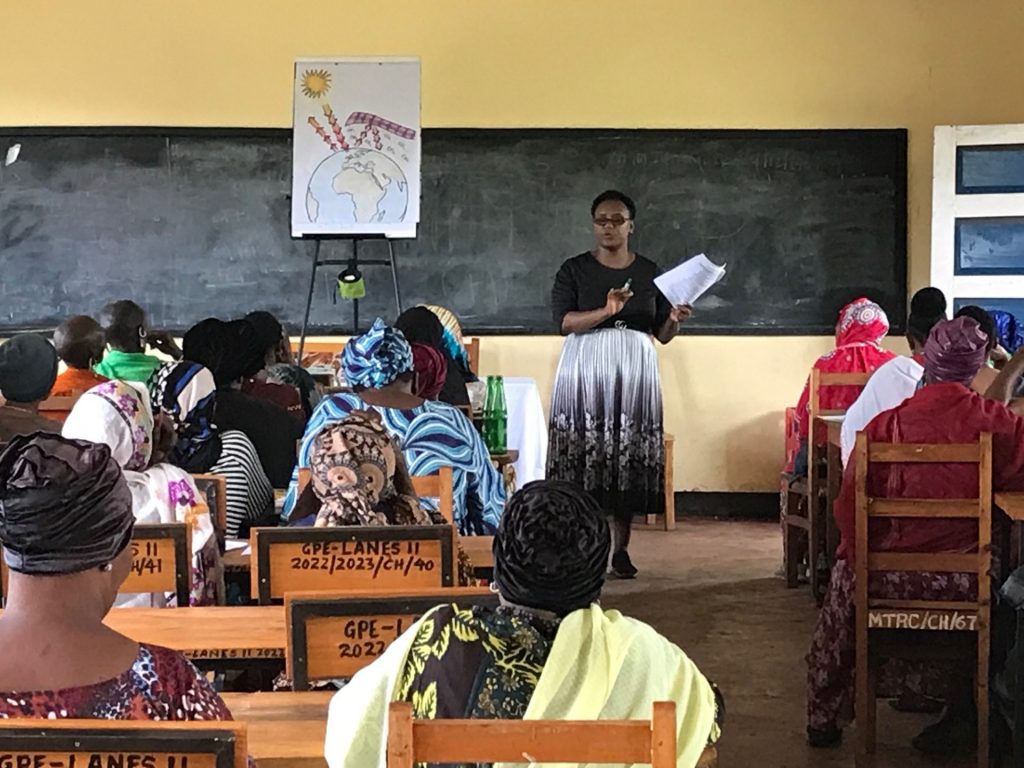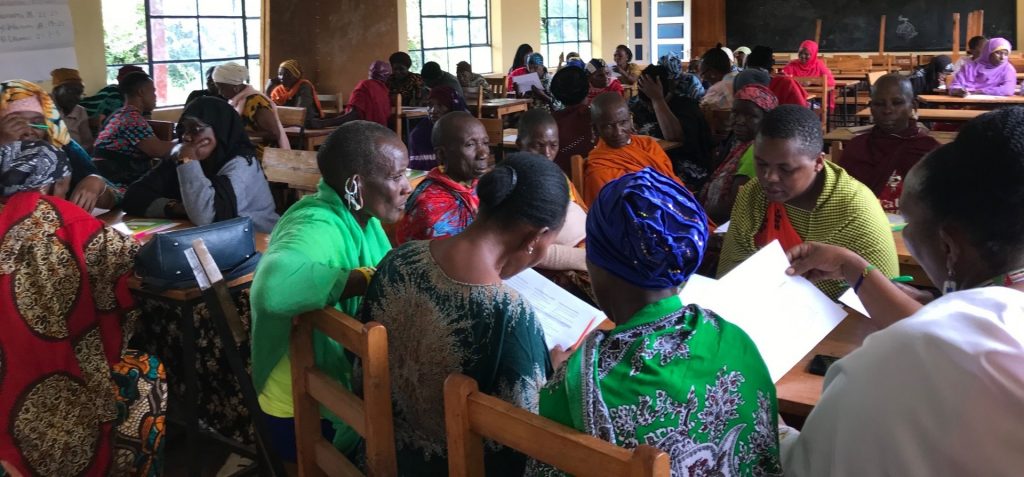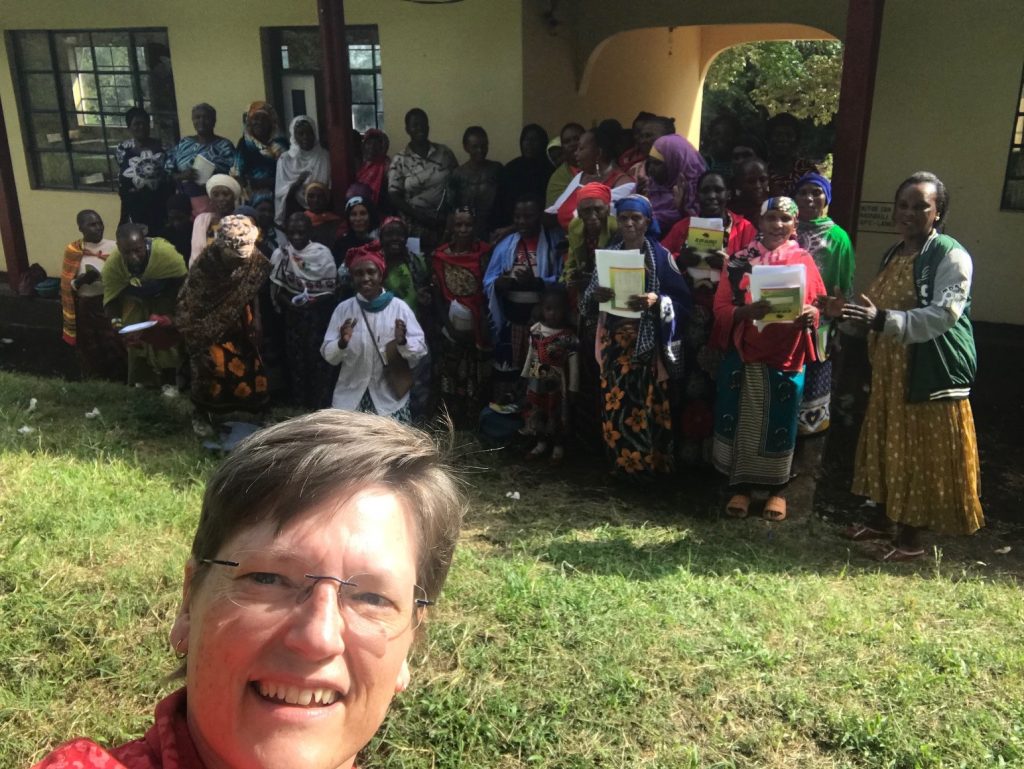What is the collective noun for a group of widows? A comfort of widows might be appropriate.
The fourth fieldwork site gathered 2 of 7 widows groups of the Amazing Grace Widows and Orphans Tanzania NGO. Each group is comprised of about 30 women. I’ve gotten to know the director, Winney, through my Monduli network. She was very eager to host my research project as a means of letting the widows know that they are valued.
With about 60 women in attendance, Rev. Dr. Suzana Sitayo taught a revised version of the lessons she developed for lay pastors in training, but now, with a focus on women in a Maasai context.

While only 12% of those present were Maasai, Suzana did a masterful job of brining the Maasai women together in a strategic way to address the research goals of equipping the Maasai community with best practices of climate change mitigation and adaptation.

All present were blessed—and challenged—with the information that includes biblical creation care, traditional environmental knowledge, and climate science. All the active participants received a small thank you gift.
One of the teaching points engages in the climate and health problems of plastic. Plastic production and disposal is responsible for 5% of global carbon dioxide production, and 50% of this amount is single use plastics. So, one small but significant ways to mitigate climate change is reduce plastic drinking bottles.
One practical way in a Maasai context is to return to the traditional use of gourds. There is a bit of charcoal used to sterilize the gourds when cleaning, but the other huge benefit of using gourds is that there are horrible health problems connected with plastics. First, there are chemicals leaching into the water (within 24 hours). Second, there are nanoparticles that are entering all the body’s organs, including passing the blood-brain barrier and lodging in the brain. There is a 50% increase of plastics in the brain since 2016. (Nihart, Alexander J., Marcus A. Garcia, Eliane El Hayek, Rui Liu, Marian Olewine, Josiah D. Kingston, Eliseo F. Castillo, Rama R. Gullapalli, Tamara Howard, et al. “Bioaccumulation of Microplastics in Decedent Human Brains.” Nat Med (2025): 1–6. https://doi.org/10.1038/s41591-024-03453-1; LaMotte, Sandee.)
One recent study collected enough plastic particles in the brain of a deceased person that was equivalent to the amount of a plastic spoon! )“Human Brain Samples Contain an Entire Spoon’s Worth of Nanoplastics, Study Says.” CNN, 3 February 2025. https://www.cnn.com/2025/02/03/health/plastics-inside-human-brain-wellness/index.html).
While simplifying the message for widows, the majority of whom did not have the opportunity to go to primary school, it was clear on the faces o the women that this scientific message was new to them. I was struck with how this information is so important for health, but where else would they hear it? The majority of the widows to not read or write. It is humbling to see a woman gingerly hold a pen to the research consent form and focus diligently on writing a few letters to indicate her name, sometimes with the help of a neighbor.
The women had a simple catered meal with sodas (in returnable glass bottles). At the end of our time, I relayed that I am also a widow, and Suzana said a lovely prayer for all the widows. Afterwards, they joined for a picture and sending us off with blessings and a song.

A final note: Each research site receives a $500 gift for administrative overhead. The funds are wired directly to their bank accounts (schools and NGOs), so that their organization’s financial practices reduce the risk that it is misappropriated. Then, the leadership can determine the best way of using the funds in alignment with their institutional mission.
Pray for the widows of Tanzania!
Mikitamayana Engai! / Mungu akubariki! / God bless you!